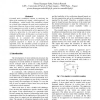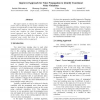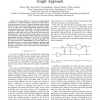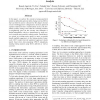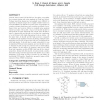11 search results - page 1 / 3 » An Event-Driven Approach to Crosstalk Noise Analysis |
ANSS
2003
IEEE
13 years 10 months ago
2003
IEEE
Crosstalk noise evaluation consists in analysing the effect of the transition of a signal - called aggressor - on its neighbours - called victims. This evaluation is based on a mo...
VLSID
2004
IEEE
14 years 5 months ago
2004
IEEE
This paper targets at reducing the crosstalk noise closure time by filtering the set of false violations. We propose two approaches to reduce the pessimism in the crosstalk noise ...
ICCD
2006
IEEE
14 years 2 months ago
2006
IEEE
— Accurate estimation of worst-case crosstalk effects is critical for a realistic estimation of the worst-case behavior of deep sub-micron circuits. Crosstalk analysis models usu...
VLSID
2002
IEEE
14 years 5 months ago
2002
IEEE
In this paper, we explore the concept of using analytical models to efficiently generate delay change curves (DCCs) that can then be used to characterize the impact of noise on an...
DAC
2008
ACM
14 years 6 months ago
2008
ACM
Current source based cell models are becoming a necessity for accurate timing and noise analysis at 65nm and below. Voltage waveform shapes are increasingly more difficult to repr...
